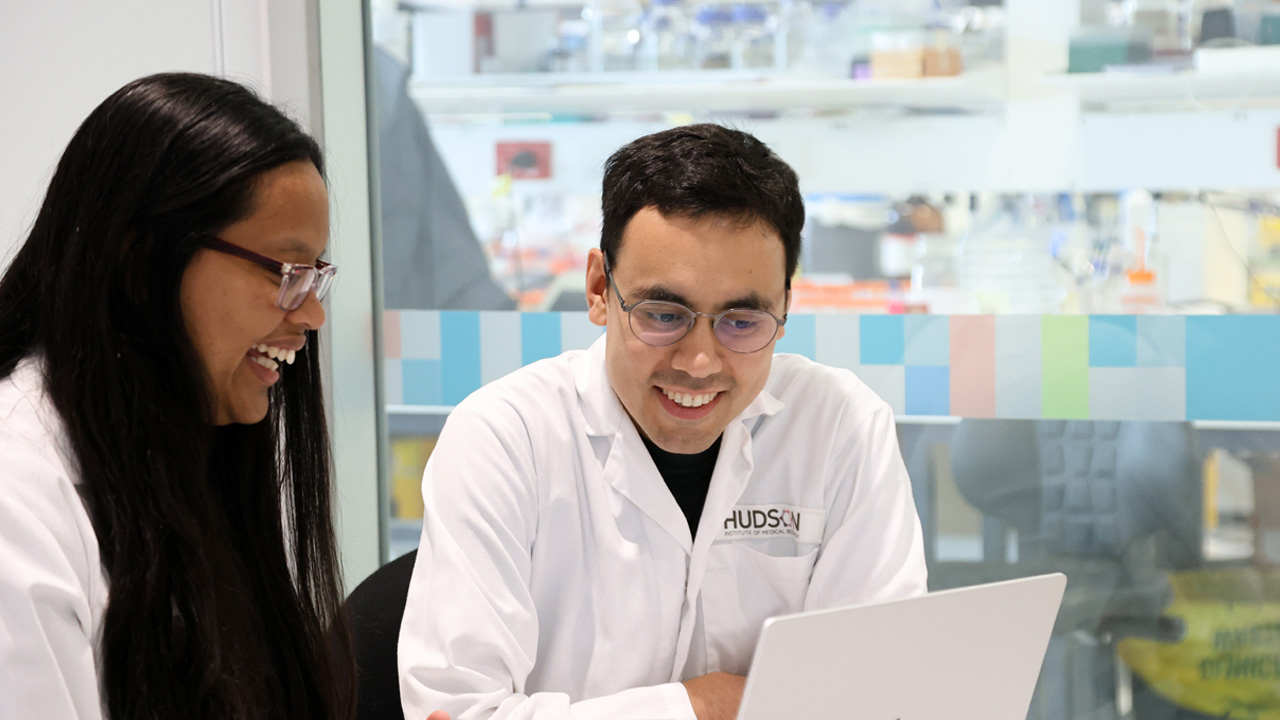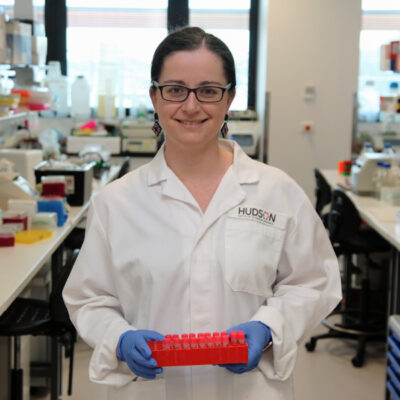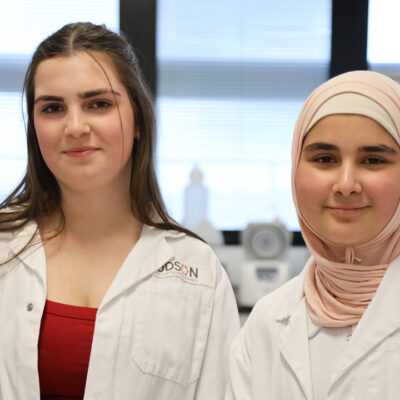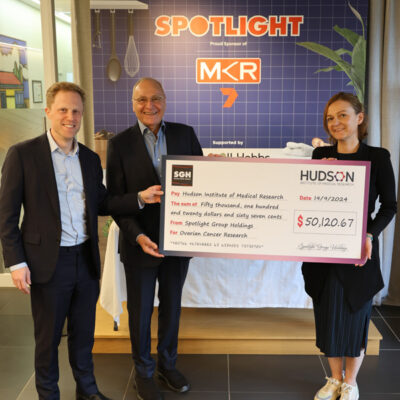Australian Lions’ children’s cancer fellowship
By Rob Clancy, staff writer

Every week in Australia three children die of cancer. There is an urgent need for new and more precisely targeted medicines to treat childhood cancers.
Many children who survive cancer never really leave it behind. It stays with them, either in the form of ongoing risk of relapse or in the many health effects that can come from the current treatments used to fight childhood cancers.
Hudson Institute is at the forefront of research to change these statistics and improve the outlook for children with cancer. It is an endeavour that takes large amounts of expertise, imagination, persistence… and money.
 The Australian Lions Childhood Cancer Research Foundation (ALCCRF) has recognised this challenge with the establishment of a prestigious national fellowship awarded to Dr Paul Daniel from our Centre for Cancer Research.
The Australian Lions Childhood Cancer Research Foundation (ALCCRF) has recognised this challenge with the establishment of a prestigious national fellowship awarded to Dr Paul Daniel from our Centre for Cancer Research.
Lions have been involved with childhood cancer since 1976. They have raised more than $13 million for childhood cancer research in the past 15 years through their foundation and have become one of Australia’s most important philanthropic donors in this vital field.
Chair of the ALCCRF, Ron Skeen OAM, was thrilled to announce the establishment of this prestigious national fellowship at Hudson.
“Dr Daniel is a cancer biologist with over a decade of experience,” he said. “He studies adult and paediatric brain tumours and is currently driving cutting-edge translational research to identify better treatments for low-survival childhood brain cancers.”
“This new fellowship provides $424,213 over two years to support Dr Daniel’s salary and much of his equipment plus a budget for engagement with patient advocates and families of cancer patients.”
Precision medicine program: revolutionising combined cancer treatments
At a time when funding for research is becoming harder and harder to win, this fellowship will have a massive impact.
Dr Daniel said: “The project which the ALCCRF funding helps support is my role in the Next Generation Precision Medicine Program, which is investigating the highly promising use of combination therapies, employing multiple drugs concurrently to enhance therapeutic effectiveness for cancer patients.”
“This approach has proven transformative for patients and presents several advantages compared to single-drug treatments, chief among them, improved survival for certain patients.”
The Next Generation Precision Medicine Program is led by Hudson Institute’s Professor Ron Firestein, a clinician-scientist and the Head of the Centre for Cancer Research at Hudson.
Discovering which treatments can be safely and effectively used together is a slow process, so the Next Generation Precision Medicine team is using actual tumour samples to evaluate thousands of treatment combinations for the identification and prioritisation of effective therapies.
 Hudson Institute is also home to the Childhood Cancer Model Atlas – the world’s largest collection of high-risk paediatric cancer cell lines, sharing research findings with 50 cancer research institutes, universities and academic medical centres worldwide.
Hudson Institute is also home to the Childhood Cancer Model Atlas – the world’s largest collection of high-risk paediatric cancer cell lines, sharing research findings with 50 cancer research institutes, universities and academic medical centres worldwide.
This is the international network that Dr Daniel is part of, working with clinical trial groups where our findings will have the opportunity to be rapidly translated into clinical settings, to improve outcomes for children with cancer.
“The support from the Lions Foundation has immediate and long-reaching impacts on my career as a paediatric cancer researcher,” Dr Daniel said. “Firstly, the fellowship secures my position as a researcher for the next few years, where I hope to make an immediate impact on how childhood cancers are treated.”
- Supporting childhood cancer research since 1976
- Australian Lions Childhood Cancer Research Foundation set up in 2009, lifting its commitment to achieving 100 per cent survival of children with cancer
- Funded a two-year fellowship covering Dr Daniel’s salary, equipment and vital cancer patient engagement.
“But it will also provide a springboard for me to establish myself as a leading researcher for high-risk childhood cancers, from which I hope to set up my own laboratory in the future to continue to address the most important questions facing the field - improving outcomes for children with cancer.”
Through this type of philanthropy, Lions have not just improved the chances of children with cancer living longer and better lives. Lions have also improved the likelihood that the next major breakthrough in paediatric cancer will come from Hudson Institute in Australia.
It’s a donation made with love, and something that everyone involved in can be very proud of.

In this issue of Hudson News Summer 2024
In this article
About Hudson Institute
Hudson Institute’ s research programs deliver in three areas of medical need – inflammation, cancer, women’s and newborn health. More
Hudson News
Get the inside view on discoveries and patient stories
“Thank you Hudson Institute researchers. Your work brings such hope to all women with ovarian cancer knowing that potentially women in the future won't have to go through what we have!”







